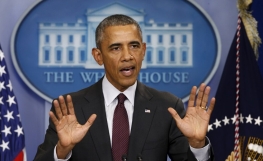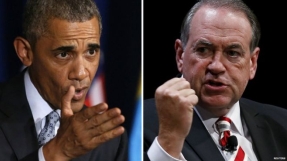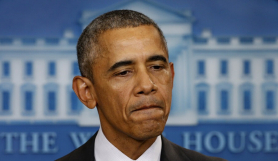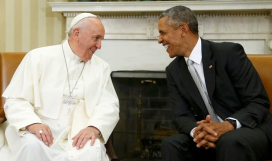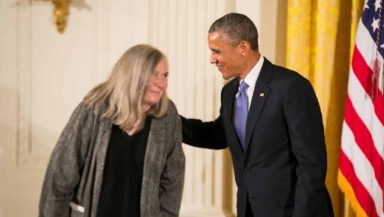
With critics having once again revived questions about his faith, US President Barack Obama appeared to have vented his frustration when he recently asked a Pulitzer-Prize winning author how she would deal with "folks who take religion the most seriously sometimes [who] are also those who are suspicious of those not like them."
On Sept. 14, Obama visited Des Moines, Iowa, and met with one of his favourite book authors, Marilynne Robinson. The two had a long conversation that was recorded by the New York Times.
On Monday, the Times provided the transcript of the conversation where Obama made revealing statements about his views on politics and religion.
Posing as an interviewer, Obama sought Robinson's opinion on various matters. Their conversation took an interesting turn when Obama zeroed in on Robinson's book titled "Gilead." Obama said one of his favourite characters in fiction is found in that book—a pastor named John Ames, "who is gracious and courtly and a little bit confused about how to reconcile his faith with all the various travails that his family goes through."
He said he "just fell in love with the character, fell in love with the book."
Obama then asked Robinson how her interest in Christianity "converges" with her "concerns about democracy."
Robinson replied that she believes "people are images of God" and that "democracy is the logical, the inevitable consequence of this kind of religious humanism at its highest level."
Obama then remarked that in the US "sometimes Christian interpretation seems to posit an 'us versus them,' and those are sometimes the loudest voices."
He then asked Robinson: "How do you reconcile the idea of faith being really important to you and you caring a lot about taking faith seriously with the fact that, at least in our democracy and our civic discourse, it seems as if folks who take religion the most seriously sometimes are also those who are suspicious of those not like them?"
Robinson appeared to share Obama's quandary, saying that when Christians "are turning in on themselves—and God knows, arming themselves and so on—against the imagined other, they're not taking their Christianity seriously."
Robinson also described Christianity as "profoundly counterintuitive," citing the famous biblical quote, "Love thy neighbor as thyself." She said although this is "sort of superhuman feat," still "you're supposed to run against the grain. It's supposed to be difficult. It's supposed to be a challenge."
Obama then remarked that as shown by the characters in Robinson's novels, "it's not ... easy for them to be good Christians."
Obama awarded Robinson the 2012 National Humanities Medal, which honours individuals or groups whose work expands citizens' understanding of history, literature, languages, philosophy and other humanities subjects.
Obama talks about Hillary Clinton, Vladimir Putin — shockingly
Obama made two other shocking remarks on Monday. During a nationally televised interview on "60 Minutes" on CBS News, Obama said he didn't think Hillary Clinton's private email server was a threat to America's security and that she simply made a mistake.
"We don't get an impression here that there was purposely efforts ... to hide something or to squirrel away information," he said.
CBS host Steve Kroft then asked Obama about Russia president Vladimir Putin, Obama tried to deflect the question, but Kroft put the question plainly: "He's [Putin] challenging your leadership, Mr. President."
Obama's reply: "I got to tell you, if you think that running your economy into the ground and having to send troops in, in order to prop up your only ally is leadership, then we've got a different definition of leadership."
He said his definition of leadership "would be leading on climate change and [an] international accord that potentially would get in Paris. My definition of leadership is mobilising the entire international community to make sure Iran doesn't get a nuclear weapon."










